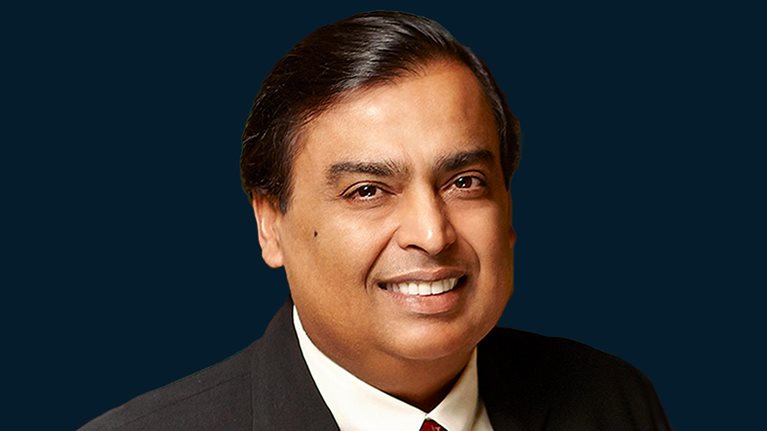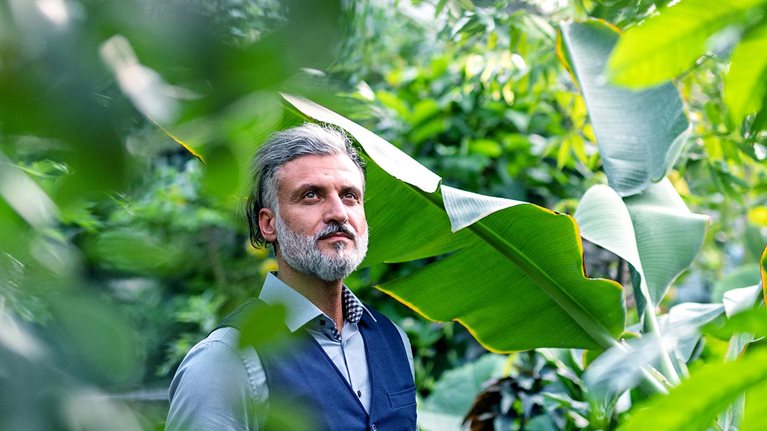This interview is part of the Leading Asia series, which features in-depth conversations with some of the region’s most value-creating leaders on what it takes to realize bold ambitions and take them further.
In this Leading Asia interview, Avinash Goyal, a senior partner at McKinsey, talks to Rajesh Rathi, the chairman and managing director of Sudarshan Chemical Industries Limited. With over 50 years in operation and a presence in more than 85 countries, the business has transformed from a domestic, family-led company into a top international entity.
The finalization of the acquisition of German pigment company Heubach Group in March 2025 has furthered Sudarshan’s expansion into global markets. Rathi discusses Sudarshan’s global ambitions, leadership lessons, and his cultural observations through Sudarshan’s evolution.
Avinash Goyal: Looking back on the past five or six years, Sudarshan has truly transformed from a midsize company into a global leader. How has the journey been?
Rajesh Rathi: The real growth began in 2007 when we and Dainippon Ink and Chemicals mutually agreed to end our joint venture. We had an exclusive global distribution agreement with them, and at that point, almost 60 percent of our sales were as a result of that agreement. However, we had ambitions to move into direct sales and transform our portfolio.
Around 2017, we analyzed each of our businesses and came up with three or four necessary criteria for each of them. We asked questions such as: Can we make this into a world-class business? Can we attain global leadership? If the answer was no, we exited the business. Our ambition was to take these businesses and make them world-class and globally scaled.
Our aim was to be among the world’s top three pigment producers. Currently, Sudarshan is a pure-pigment player, with one process engineering business. That was achieved through organic growth—we have become the most profitable pigment company and the number three player globally. The next phase was inorganic growth, and the deal with the Heubach Group was a golden opportunity for us.
Avinash Goyal: Tell me more about the Heubach transaction—it has taken Sudarshan from sales of about $285 million to $1.4 billion in a short period of time.
Rajesh Rathi: We’ve always had global ambitions, and we were preparing for inorganic growth. We had strengthened our leadership team—50 percent of our leaders were international, with true global experience and a similar appetite for expansion. The Heubach deal was the perfect opportunity for us to meet our aspirations.
With part of the business insolvent, it was a financially and legally complex deal—an asset purchase deal combined with a share deal. It was a good transaction for us, with Heubach bringing a lot to the table: IP in pigments, technocrats, and 17 manufacturing sites. This gives us a global footprint and, combined with Sudarshan’s agility, entrepreneurship, and ambition, translates into a world-class global pigment organization. We are now number two in the world, but our aspiration in the short term is to become the global leader in pigments.
Avinash Goyal: Sudarshan has an interesting history. Please tell me more about it.
Rajesh Rathi: The company was started in 1951 by my uncle—who completed his PhD in chemical engineering in the United States—along with my father and his other brothers. From the outset, it was a profit-making company, based on three principles. The first was meritocracy. Despite not being the eldest, the third brother was made CEO because he was the most educated. The second principle was discipline, with regard to coming in to work on time. In the 1950s, coming from a Marwari family, you didn’t start work before 11 a.m., but there was a rule that everyone had to report to work at 8:45 a.m. I remember as a child, if my father was even five minutes late for work, he would be very upset because a quarter of his day’s salary would be docked. The third principle was financial discipline: Plow money back into the company and lead a very simple lifestyle.
Education was a very important factor in our family. In order to join Sudarshan, you had to have a basic engineering or science degree, followed by a master’s degree and an MBA from a global university.
Avinash Goyal: One of the challenges—or opportunities—for Asian businesses is the transition from being primarily family-led, to the inclusion of more professionals in the business. Sudarshan appears to have made that transition seamlessly. Has the transition really been smooth?
Rajesh Rathi: In the 1990s, at the peak, I think we had 14 family members working in various businesses across the group. There were seven or eight of us at one point within the Sudarshan Group, which included Sudarshan Chemicals and some of the engineering group. Our founders realized that wasn’t sustainable and decided to break up the businesses. As we started growing, the family made a unanimous decision that meritocracy should be the predominant factor, so we slowly made the organization more professional, and built a good pipeline of leaders.
Common traits across our leadership team are boldness and ambition. One of my responsibilities is to ensure that I keep coaching and directing our leaders toward the common aim of the company being a world-class, global leader.
Creating a single culture is going to be very important going forward—it’s not just about processes, it’s also about people. It’s important that I understand the people, the culture, and the challenges.
Avinash Goyal: As an Indian company going global, with assets in new markets such as Brazil and Mexico, what are some of the unique challenges you face?
Rajesh Rathi: The first challenge was to establish our credibility. Often, in some of the larger markets like Europe and the United States, Asian players lack credibility. The second was to attract the right people, with an appetite and ambition, into the business.
We’ve never operated in countries such as Brazil, Japan, and Mexico at this scale, and it’s an exciting learning curve. Creating a single culture is going to be very important going forward—it’s not just about processes, it’s also about people. An important decision that I’ve made is that I’ll move to Frankfurt and create a second global headquarters, spending about 50 percent of my time there. It’s important that I understand the people, the culture, and the challenges. I believe that Germany still is a place to produce specialties, and we want to ensure that our German sites are the jewels in our entire manufacturing crown.
I expect my India-based leadership team to spend a lot of time in the other parts of the world. Likewise, the international leadership team should come to India. This way, we’ll understand each other better. As a multinational, I’ve learned to look at each country individually. For example, when I’m setting budgets for India, my head of sales may give me a higher target than they will deliver, so I’ve already discounted that in my mind. When I receive the same in Germany, I know they’ll deliver on target or over. These are some of the nuances I’ve learned.
Avinash Goyal: Sudarshan is a complex specialty business, with thousands of SKUs, a wide variety of customers, and board members and investors across the world. How do you navigate the cultural differences?
Rajesh Rathi: I think you need a combination of an open mind, good listening skills, and a willingness to accept cultural differences. Some of the principles—being customer-centric and ambitious—are the same across the world; it’s more the nuances, such as how you operate in a Brazilian or Japanese market, compared to a more traditional German or European market.
There are new lessons for the team all the time; the most important thing is that we are not shy to learn, and we’ll keep learning and adapting to what makes sense for each market.
Avinash Goyal: I think one of the unique things I’ve observed is the perception that Indians are viewed as “chaotic,” whereas we view it as agility. Because the world is chaotic, things are sometimes not delivered on time, or changes are made to processes. What’s your take on this?
Rajesh Rathi: That’s a very good point. I think having a timeous, process-driven culture in Sudarshan has helped. And respecting people’s time has been an important aspect as we grow. This meant there was good mutual respect and a genuine warmth between us and Heubach during the integration of the two companies, for example. I don’t think we looked at it as an acquisition, but as two companies truly coming together.

Leading Asia
Avinash Goyal: Sudarshan has some unique values—besides being customer-focused, there’s a strong emphasis on diversity and inclusion.
Rajesh Rathi: Our values stem from the Sanskrit word seva, which means service without being selfish, and serving through your heart.
Sustainability in our organization is important, and diversity and inclusivity form part of this. I believe this starts at the top—30 to 40 percent of our board are women. Our people practice head has also hired more than 200 women on the chemical shop floor. This was unheard of in the industry and there was great opposition when we started this initiative. But now there is demand—we find the plants with women operators produce both the highest quantity and best quality products. As the next step, we are looking to employ people with disabilities wherever we can.
Avinash Goyal: In closing, what advice do you have for Indian entrepreneurs or companies that are looking to go global?
Rajesh Rathi: On a fundamental level, I would say it’s cultivating a desire and mindset within your organization to go global, an appreciation of the culture of each market, and an understanding of the nuances of what it will take to expand in that specific market. Focus on the bottom line but keep adding value in each area. Identifying your competitive advantage and really spelling out the winning formula in each market is a critical aspect.

